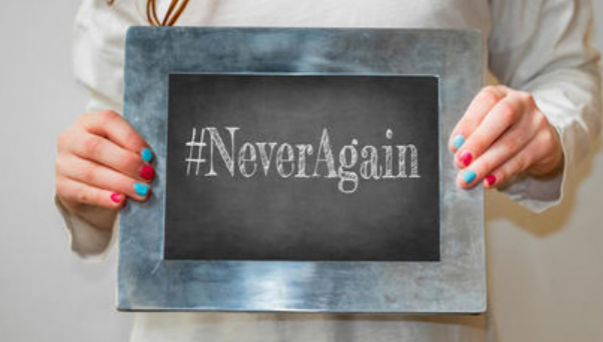Never Again...For Anyone?
Holocaust awareness is an integral component of most Jews’ sense of identity. For better or worse, we have made this phenomenon into a centerpiece of our cultural makeup. The watchword, so to speak, of Holocaust education, is “never again.”
A matter of great consequence for us as Jews is the way we translate the pain of the Holocaust into practical principles. It is imperative for us to determine whether “never again” means never again for us or never again for anyone.
Of course, there is no “right” answer to the question. As a people that has been targeted and oppressed for millennia, we as Jews undoubtedly need to be especially sensitive to self-preservation—especially now, in a post-Holocaust world. However, we must also incline toward the more expansive of “never again” visions, a dream of never again for anyone.
Lest it be unclear, let’s recognize that this is far from a theoretical issue. We live in a time when the meaning of “never again” will be clarified—not by philosophizing rabbis or scholars—but by our actions. Next door to Israel, the country that secures our “never again,” there is a people that faces the threat of ethnic cleansing. If “never again” means never again for anyone, then it needs to mean “not even for the Kurds, not even if we have to be involved to prevent it from happening.” Many Jews lament that the world stood idly by while we were murdered by the millions; we simply cannot believe that such indifference was reprehensible when we were targeted by the Nazis, but happens to be somehow acceptable (or not our problem) when it happens to others.
The costs of working to prevent atrocities like those that are currently taking place in Syria can feel overwhelming; if it’s your child, sibling, parent, or friend who is dispatched to a far corner of the world to take part in a conflict that “isn’t our own,” then it might feel like it’s too much. But Judaism isn’t without teaching on such matters. Judaism doesn’t imagine that we have nothing at stake.
In one famous verse from Leviticus (19:16), we read לֹא תַעֲמֹד עַל-דַם רֵעֶךָ—you shall not stand upon the blood of your fellow, i.e., do not stand idly by while your fellow is harmed. Maimonides explained the idea this way:
“Anyone who can save [his fellow] and doesn’t do so transgresses the commandment you shall not stand idly by, and so too with one who sees his fellow drowning in the sea, or bandits coming after him, or a wild animal attacking him— whether he himself can save him [the person in danger] or whether he needs to pay someone else to save him, if he doesn’t do anything…he transgresses.”
Maimonides’ principle is quite strong, and for us, in a modern, progressive Jewish context—where we consider people of all faiths, races, and ethnicities our “fellows”—this exhortation goes further and is quite clear. If it becomes evident to you that another person (or people) is being unjustly hurt, then it is your job to try to stop it. There are no loopholes for inconvenience, cost, or geographical distance.
As Jews, it is our duty to ensure that no other nation undergo the sorts of discrimination and persecution that we ourselves historically have faced. If we fail to act, then the tribulations we have experienced fall short of their potential to have instructive meaning. In contrast, if we use the lessons of our past to ensure a more just future for all peoples, then we do construct meaning out of our own encounter with suffering. It is incumbent on each of us to ensure that “never again” means what we all know it ought to mean: Never again, no matter where, no matter to whom.

